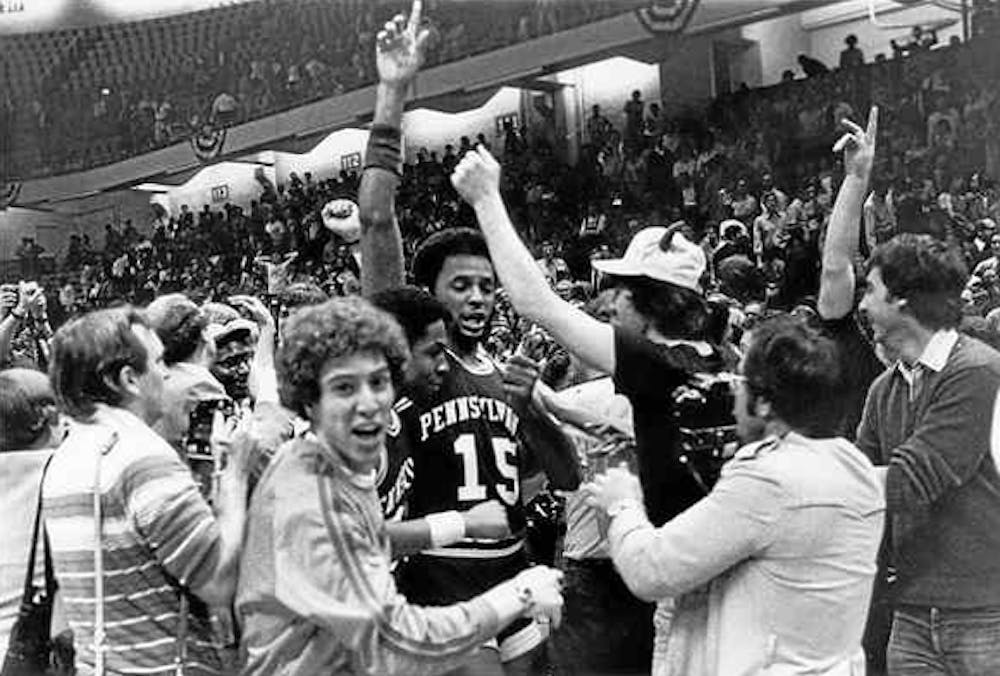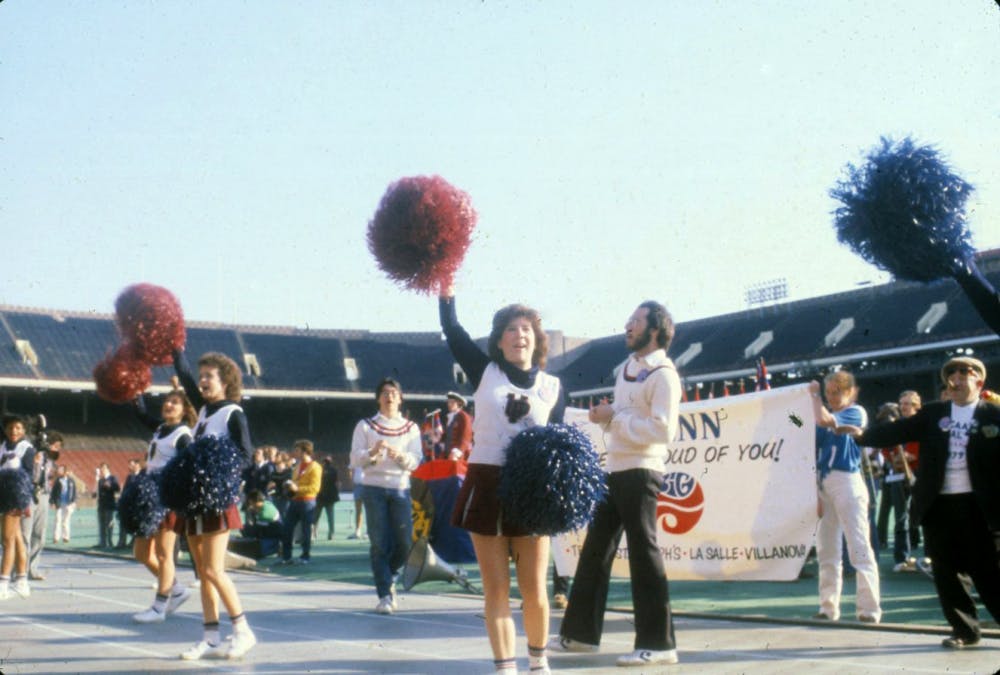
Photo from University of Pennsylvania
A blue-blood basketball program, playing at a supposedly neutral site located in their home state. An underdog, low-seeded Penn basketball team that no one outside of West Philadelphia believes in.
The year, of course, is 1979. The Quakers are the No. 9 seed and coming off a close win in the first round over Iona. They are set to face No. 1 seed North Carolina in Raleigh, N.C.
“Having to play at North Carolina, I guess you could say it’s a little similar to Penn this year having to play Kansas in the state of Kansas, but you gotta do what you gotta do. I never went into a contest worried about the other team,” said class of 1979 and star guard Tony Price.

“71-70 [was the final score]. It was very exciting. The main thing was, a lot of people thought we shouldn’t even show up … to this day I don’t think the University of North Carolina has lost an NCAA [Tournament] game in the state other than the one, and the University of Pennsylvania is the ones that beat them.”
The Quakers then pulled off a couple more upset victories to advance to the Final Four. Here, they faced No. 2 Michigan State, led by Magic Johnson, for the chance to face Larry Bird’s Indiana State team in the final. The deep and talented Spartans were too good for the Quakers, and that’s where the Cinderella story ended.
It remains the most recent time an Ivy League school has made it that deep in the NCAA Tournament, and no team has made it further, other than a 1944 Dartmouth team that made the championship game when the tournament had only eight teams.
Penn's basketball history extends much further than the '79 run. In fact, Penn played Yale in 1897 in one of the first recorded college basketball games to use modern rules, such as limiting each team to five players on the court at a time. Since then Penn has made the NCAA tournament 24 times, tied for best in the Ancient Eight with Princeton.
The late '60s and early '70s were an important time for Penn. The team was frequently ranked and regularly sent graduating seniors to the pros. In 1970-71, a Quakers team featuring Dave Wohl, Steve Bilsky, Bob Mores, and David ‘Corky’ Calhoun, the last of whom would go on to be drafted fourth overall by the Phoenix Suns in 1972, went undefeated in the regular season, before eventually being defeated by Big 5 rival Villanova in the Eastern Regional Final.
The loss was eventually scrubbed from the record books when Villanova was caught using an ineligible player. Due to that technicality, Penn is the only college basketball team to never lose a game but fail to win the national title.
Next, of course, came the 1979 team.
“The University of Pennsylvania, at that time, was one of the top teams in the country and they had a great [academic] program, and I wanted to go somewhere where I could develop both as a student and an athlete,” Price said.
Led by Price, the Quakers put together a string of upsets that reminded the country not to write them off. In many ways they’re similar to today’s team: nobody believed in them, but they played with grit and toughness that made them victorious anyway.
One major difference is that, while Price’s Quakers were still basking in the afterglow of an awesomely successful decade, the current team is not.
Penn had not won a bid to the NCAA tournament in 11 years, a drought stretching from 2006-07, when star point guard Ibby Jaaber’s senior season came to a close to just last week. Jaaber, who won back-to-back Ivy Player of the Year awards in his last two seasons, went on to play professionally in Europe and is considered one of the greatest basketball players in Penn’s history.
Few expect Penn to make a deep tournament run in this era, but getting a first round win in the tournament is an attainable goal and helps prove that an Ivy winner can compete out of conference, too. The last time Penn managed to do that was in 1994, a year before current assistant coach Ira Bowman came to Penn.
“I think they’re gonna compete, and make Penn proud,” said Price. “They’ve done that all year, I’m very proud of the team.”
And they’ll surely have the weight of those giants in Penn history behind them.
The Daily Pennsylvanian is an independent, student-run newspaper. Please consider making a donation to support the coverage that shapes the University. Your generosity ensures a future of strong journalism at Penn.
Donate





